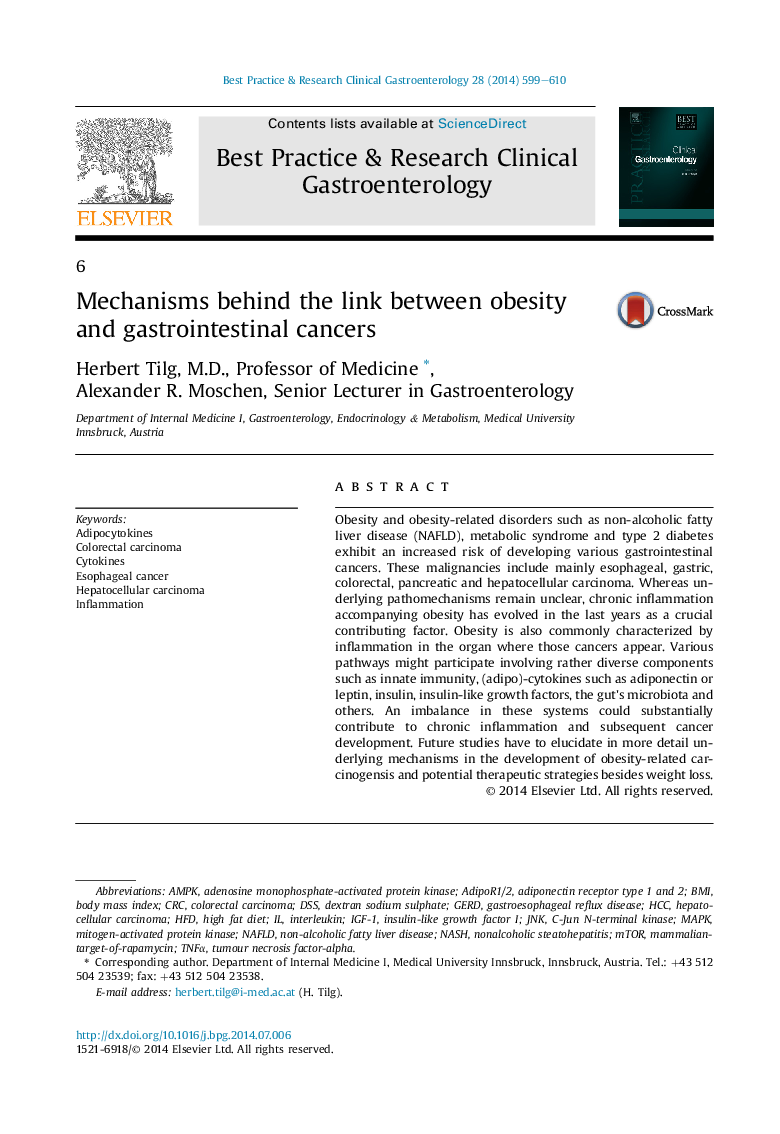| Article ID | Journal | Published Year | Pages | File Type |
|---|---|---|---|---|
| 3254019 | Best Practice & Research Clinical Gastroenterology | 2014 | 12 Pages |
Obesity and obesity-related disorders such as non-alcoholic fatty liver disease (NAFLD), metabolic syndrome and type 2 diabetes exhibit an increased risk of developing various gastrointestinal cancers. These malignancies include mainly esophageal, gastric, colorectal, pancreatic and hepatocellular carcinoma. Whereas underlying pathomechanisms remain unclear, chronic inflammation accompanying obesity has evolved in the last years as a crucial contributing factor. Obesity is also commonly characterized by inflammation in the organ where those cancers appear. Various pathways might participate involving rather diverse components such as innate immunity, (adipo)-cytokines such as adiponectin or leptin, insulin, insulin-like growth factors, the gut's microbiota and others. An imbalance in these systems could substantially contribute to chronic inflammation and subsequent cancer development. Future studies have to elucidate in more detail underlying mechanisms in the development of obesity-related carcinogensis and potential therapeutic strategies besides weight loss.
